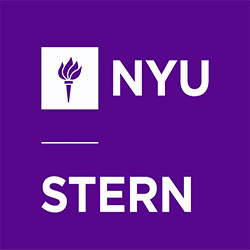 Eugenio Prati is an MBA Candidate in the Tech MBA Program. He moved to New York City from Ann Arbor, MI. Prior to Stern, Eugenio worked as a R&D Program Manager in the automotive industry. His team was responsible for leading new vehicle development from digital prototypes through to mass production. Outside the classroom, Eugenio is an avid runner and a member of the NYU Cycling Club.
Eugenio Prati is an MBA Candidate in the Tech MBA Program. He moved to New York City from Ann Arbor, MI. Prior to Stern, Eugenio worked as a R&D Program Manager in the automotive industry. His team was responsible for leading new vehicle development from digital prototypes through to mass production. Outside the classroom, Eugenio is an avid runner and a member of the NYU Cycling Club.
Deciding to pursue an MBA can be a scary process. Initially I agonized over when it would be most strategic to quit my job to return to school. Later, I spent months drowning in MBA info sessions and marketing material desperately trying to understand the differences between schools and programs. I drove everyone around me crazy. One week I would tell them about the program I was most excited about and the following week I would tell them about a different program that was now atop my MBA list. The process was maddening, but once I chose NYU’s Tech MBA, I never looked back – and here’s why.
The world is changing and so should MBAs
Working in the automotive industry, the rise of EVs, autonomous vehicles, and car sharing, was a constant reminder of tech’s ability to drive change in any and every industry. From the pharmaceutical industry to financial services, the entire world is being shaped by technologies like cloud computing, machine learning, 5G, blockchain… The leaders of tomorrow will need to have more than business acumen. They will need to understand these technologies and their potential in order to make the strategic decisions their organizations expect from them. By combining tech and business fundamentals into a one year MBA, NYU Stern’s Tech MBA is tailor made for these changing times.
Best parts of the experience and curriculum
Our cohort is composed of people with and without tech experience from all over the world. The differing professional backgrounds provide insights into how to bridge the gap between those fluent in tech and those fluent in business/strategy. The international backgrounds provide insights into the differing levels of infrastructure, development, and tech adoption around the world. Combined, the eclectic group makes for invaluable debates and discussions.
The experiential learning within the curriculum, Tech Immersion and Solutions, includes company visits on both the East and West Coasts, guest speakers from Google, Uber, Amazon, BCG, Skillshare, and others, as well as semester long group projects with companies such as Waze, Pfizer, KPMG, Roku, PayPal… This hands-on experience provides clarity on the direction Tech is headed in and the nature of MBA roles within it in ways that no lecture or Google search ever could. For example, while partnering with Pfizer, we got a first hand glimpse of how they think about digital innovation and the roadblocks they face when deploying innovations in a tightly regulated industry.
Finally, the curriculum pairs all the business fundamentals one expects from an MBA, with all the tech fundamentals one could want. Courses like Dealing with Data, Data Science for Business, and Foundations of Networks, gave us the SQL, Python, HTML, CSS, and JavaScript overview needed to collaborate with SW Engineers, Data Scientists, and Designers. Courses like Digital Currency and Blockchains are teaching us about the history of currency and the technology underpinning the future of finance. The list goes on…
Who would I recommend the Tech MBA to?
If you are excited about the future, fascinated by the technologies shaping the world around us, and hoping to make an impact, the Tech MBA is for you.
Be prepared to work. This is a one year program but it is a full MBA. Your summer will be intense, but if you grit your teeth you’ll get through it and you’ll be one step closer to having the skills you need to thrive in these changing times.

